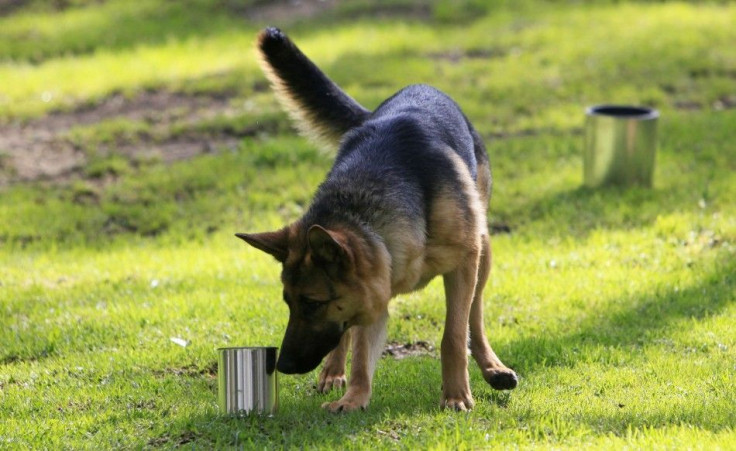Dogs Can Sniff Out Lung Cancer In Early Stage: Study

Highly trained dogs can sniff out lung cancer in its early stage, while it is treatable, a new study suggested.
German researchers discovered that dogs could pick up on the smell of organic compounds related to lung cancer, through human breath.
The study involved two German shepherds, an Australian shepherd, and a Labrador retriever, all of them trained to lie down in front of the test tubes where they smelled lung cancer and touch the vial with their noses.
They could correctly identify cancer in 71 out of 100 samples from lung cancer patients, while ruling out cancer in 372 out of 400 samples that were without cancer.
The surprising result of 7 percent false positives points to a very high specificity of trained dogs to identify lung cancer, said study researcher Thorsten Walles, MD, a lung surgeon at Schillerhoehe Hospital in Gerlingen, Germany.
"It even surpasses the combination of chest computed tomography (CT) scan and bronchoscopy, which is an invasive procedure that needs some form of anesthesia," Walles told WebMD.
According to Walles, the length of training period could make an important difference between studies on dogs' ability to detect cancer.
In the mentioned study, the four dogs went through nine months of training. Some previous studies used dogs trained only for three weeks.
What sample is used in the smell test could also be an influential factor, says Walles.
Over the years researchers have theorized that cancer has a detectable scent, coming from chemical compounds produced by cancer cells and breatheed out of the lungs as gas. Researches involved dogs to test whether they could correctly smell diseases such as diabetes, bladder cancer, breast cancer and colon cancer.
"This is probably the most sophisticated study I've seen on this topic," says Dr. Len Lichtenfeld, deputy chief medical officer of the American Cancer Society
"This is the holy grail," said Suresh S. Ramalingam, MD, associate professor and director of the lung program at Emory University's Winship Cancer Institute in Atlanta, according to WebMD. While not involved in the research, Ramalingam is currently developing technology aiming to replicate the ability of dogs to sniff out trace amount of chemicals generated by cancerous tumors.
"The whole field is focused on using something that's readily available that does not involve an expensive surgery or scan that would allow us to find early cancers," says Ramalingam.
While the new study is certainly a big step forward, questions still remain.
"We've seen this happen enough to suggest there are compounds in the breath of patients with cancer that could provide an early warning about he presence of cancer in the body, but we still do not know exactly what those compounds are," said Lichtenfeld. "We can't pick out what the dogs smell."
According to Ramalingam, because of the varying success rates between dogs and between samples, there needs to be reliable technology that can repeat what dogs do in sniffing out cancer.
"The dogs show that it can be done. We need to find out what the dogs are sniffing so we can do it in a more scientific manner."
The study is published in the European Respiratory Journal.
© Copyright IBTimes 2024. All rights reserved.











